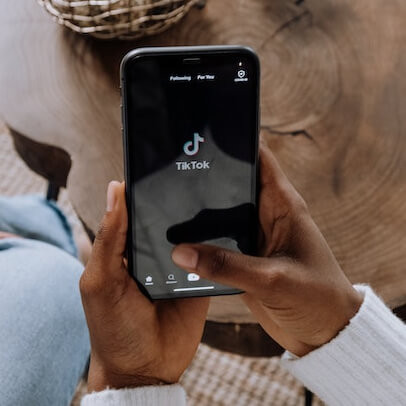
Some Human Resources leaders are banning or considering a ban on TikTok, the social media platform that swept the nation during the pandemic and is owned by a Chinese national. Many believe that the platform poses a security risk, especially amid rising tension between Xi Jinping’s China and U.S. President Joe Biden’s America.
HR is often charged with establishing rules and regulations for employees. Private companies have the legal right to ban or prohibit employees using company-issued technology. In addition, they can regulate how people spend their time during the hours for which they are paid. They cannot infringe on First Amendment rights by determining whether people post on the social media platform during off hours on their personal devices.
Where Is TikTok Banned Already?
However, federal and state governments are considering laws that could prohibit such use. In fact, Montana recently became the first state to outright ban TikTok. It prohibited the app from operating within the state and making it unavailableto download in the app store. The law will take effect on Jan. 1, 2024.
This will likely be tested in court because TikTok’s parent company, Bytedance, said the Montana bill “infringes on First Amendment rights,” of users and it will defend rights in and out of the state, according to LinkedIn.
In the meantime, many states have already barred workers from using TikTok on public devices. Among them are South Dakota, Maine, Mississippi, Louisiana, Kansas, Ohio, and New Jersey, according to the Miami Herald. In these instances, the state government was acting as an employer with security as the main motivator. The federal government has done the same. Both Democrats and Republicans in Congress have expressed concern about TikTok.
JOIN THE CONVERSATION: Misperceptions about GenZ and Millennials
Why Ban TikTok?
As soon as TikTok entered the social media scene, people had reason to be suspicious. The world had been thrown into a global pandemic that began in China and the country was offering little information about what was happening with the disease there and lacked transparency when asked questions about the origins of COVID-19.
Still, American young people loved the platform and spent hours in lockdown churning out funny dance videos and having brief conversations with the world at a time when everyone was isolated to some degree. The main concern is that the platform’s owner – and by extension possibly the Chinese government – have access to user data. Unlike other parts of the world, the U.S. government has not implemented any substantial data privacy laws.
In addition, the federal government warns that Bytedance is beholden to the Chinese government.
“FBI Director Chris Wray said in November that TikTok poses a national security risk, adding that Chinese companies are required to essentially ‘do whatever the Chinese government wants them to in terms of sharing information or serving as a tool of the Chinese government,'” according to Reuters.
Wray also warns that the Chinese government, an entity of which reportedly holds a 1% stake in Bytedance, could use the platform to control devices and influence users in the United States.
Many have already warned that social media platforms can be addictive and can harm users, especially those who are young or impressionable. Studies conducted by various states have proven the damaging effects TikTok and other social media can have on children.
Specifically Wray has expressed concern about the Chinese government controlling data and the algorithm. Essentially, China could use the platform to access user data and sway public opinion or worse brainwash people. Recently, Congress’ House Energy and Commerce Committee grilled TikTok CEO Shou Zi Chew about the risks of the platform, China’s involvement, and the future. Chew denied the Chinese government’s involvement in the business and vowed to protect American user data. But Congress – members on both sides of the aisle – largely did not buy it.
Why Should Employers Care?
China is currently a frenemy of the United States. However, it is moving closer to enemy territory everyday. The communist government rules with an iron fist and takes the opposite position of Americans when it comes to freedom and liberties. It is taking a hard line regarding Taiwan, which sees itself as an independent country despite China seeing it as its own. In addition, China’s leader Xi is good friends with Russia’s Vladimir Putin, who launched a war on the independent Ukraine, which is gripping the world and negatively impacting the global economy. Xi has sided with Putin without fully embracing his war.
Yet, China itself has begun a crackdown on overseas businesses. Recently, the government raided Chinese offices of U.S. due-diligence firms, questioned staff at Bain in China, and put state security czar Chen Yixin in charge of these efforts, according to Wall Street Journal. American businesspeople working in China are at risk of further scrutiny or worse.
This standoff with China puts the question of whether to ban TikTok into another stratosphere. Rising tension makes the social media platform seem like more of a potential threat. Some employers are opting to ban it as a means of protecting their intellectual property, employees, and customers.
What will you do? Will you ban TikTok at work? Let us know in the comments.
Photo by cottonbro studio for Pexels

